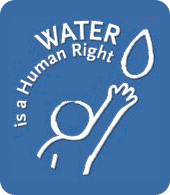Turkey, the Kurds and the Imrali Peace Process: An Historic Opportunity
-
Von 10th INTERNATIONAL CONFERENCE ON "THE EU, TURKEY AND THE KURDS"
-
*** Agenda: 10th EUTCC Conference 'EU Turkey Kurds' ***
-
*** Speakers' & Patrons' Profiles ***
-
President Schulz: Only political route will bring about a peaceful, fitting and lasting solution.
Von Martin SCHULZ, President of the European Parliament, 4th Dec 2013 -
Prof. Phillips: Autonomy, truth telling, amnesty
Von Prof. David L. PHILLIPS (USA) -
Leyla Zana: Hemû beşdaran bi hestên xwe yên germ silav dikim.
Von MP Leyla Zana -
Aydar: Turkey wants to become part of EU, so the EU also need to contribute to this process.
Von Zübeyir Aydar -
Chomsky: We are living a period of dangers and prospects
Von Noam Chomsky -
MP Tanrikulu: AKP approaching Kurdish issue as a mere means for electioneering
Von MP Sezgin TANRIKULU (CHP) -
Spyer: Two autonomous Kurdish entitites, two rival pan-Kurdish movements
Von Jonathan SPYER -
Jongerden (Netherlands): The future of today
Von Joost JONGERDEN -
Yaşar Kemal: Demokrasi bir gereksinmedir. Demokrasi bir denge düzenidir.
Von Yaşar Kemal -
Yayman (Turkey): Özal Açılımı Neden Başarılı Olamadı?
Von Hüseyin YAYMAN -
Jürgen Klute, MdEP: Die Zeit der Versprechen muss zu Ende gehen
Von MEP Jürgen Klute


